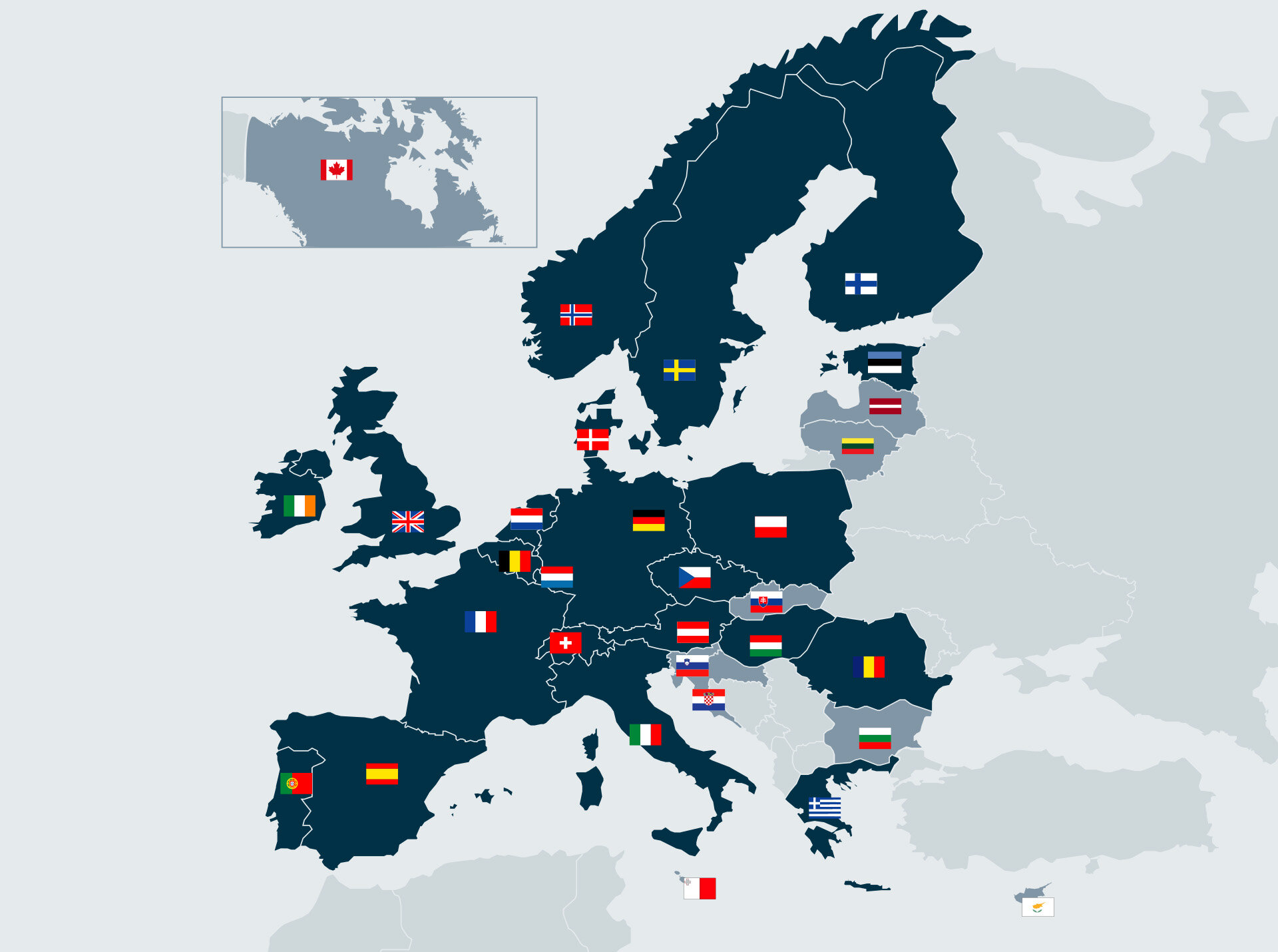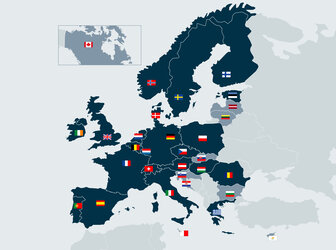If you are from an ESA New Member State
Programme for New Member States (NMS)
The purpose of the programme for NMS or Incentive Scheme is to:
- Help the national administrations to relay information about ESA business opportunities among the national economic operators.
- Speed-up the identification and development of economic operators that may sustain a viable business case as a supplier for ESA projects.
- Support the rapid introduction of the national economic operators in the European Space supply chain.
- Contribute to bridge the geographical return gap occurring in the first years after a Country accession as a full-rights member of ESA.
- Encourage and promote industry-academia collaboration, to foster the spin-out of academic knowledge to industrial recurring products and services ready for the market (at regional, national and European level, via SMEs and start-up companies).
- Provide training and feedback to economic operators in the NMS to assist in working with ESA. Training is available on such topics as Product Assurance and Quality Assurance, ECSS Standards, Proposal writing skills.
- Collaborate with national Space Offices to ensure a coordinated and dynamic space ecosystem aligned to the national Space Strategy and governmental needs.
For countries ascending to ESA before 2019, the budget for the NMS incentive Scheme is an agreed fraction (typically 45%) of the NMS contribution to the ESA Mandatory programme. The duration of the incentive scheme is agreed during the country accession negotiation and it is typically seven years from the moment the country acquires full rights as an ESA Member State. The incentive scheme procedures are operated by the New, Cooperating and Associate States Section (IPL-IPS) in ESA reporting to a Task Force (TF) between the NMS and ESA and chaired by the NMS head of Delegation and the ESA Director in charge of procurement.
For countries joining ESA from 2019 onwards, the budget will remain at 45% of the contribution to the Mandatory programme now with a minimum 750 k€/yr allocated for the incentive scheme. The duration of the transition period will now be fixed at eight years with a possible extension of up to four years.
The budget of the incentive scheme is expended by placing contracts to economic operators in the NMS, through either Permanently Open or Top Down Invitations to Tender (ITTs).
For Permanently Open calls, an Announcement of Opportunity (AO) is published approximately once per year on EMITS where the economic operators in the concerned NMS may submit outline proposals for activities, within programmatic restrictions described by the AO Cover Letter. For Top Down calls, a roadmap for specific activities described by a Statement of Work is agreed by the NMS TF.
All Permanently Open calls follow the following common approach:
- The activities the economic operator suggest shall aim at fulfilling the objectives of the incentive scheme. Usually four types of activity are foreseen: Preparatory activities aiming at the economic operator acquiring skills needed to bid in ESA programmes; R&D activities aiming at the early definition phases of space products or services; Flight equipment activities aiming at advanced development phases and; Development of terrestrial products and services based on the use of satellite data.
- The AO together with the applicable conditions is published in ESA EMITS and accessible to economic operators registered there. The AO includes a deadline for the submission of proposals.
- The proposals are evaluated following standard ESA evaluation procedures
- The proposals recommended by the evaluation teams (known as Tender Evaluation Boards) are submitted for approval to the NMS task force. The task force approval means that ESA is authorized to start negotiations for the placement of a contract with the economic operator whose proposal has been approved and in case of successful negotiations place a contract.
Top Down calls generally follow the following approach:
- There is one closing date per ITT, with a set tendering period.
- Proposals are submitted in response to an ITT initiated by ESA with Statement of Work and clear requirements, published on ESA EMITS and accessible to all registered economic operators.
- An agreement is made between ESA and the NMS delegation prior to publishing the Statement of Work on the budget and requirements, meaning there is no need to submit the recommended activities to the NMS TF for final approval (meaning the time to contract is significantly reduced).
For both Permanently Open and Top Down ITTs, the format of open AO where the economic operators define the activity they need to perform allows for speeding the participation of economic operators in the ESA system because there is no need to wait until a suitable opportunity appears in the normal ESA working processes.
The time from identification of an ESA need to contract in the incentive scheme is much shorter than in other ESA programmes, contributing to the fast incorporation of economic operators in the system.
The activities in the incentive scheme are awarded to proposals evaluated above a given threshold of technical credibility and usefulness but are not object of competitive tendering (i.e. they only compete with other entities in their own country), helping the NMS economic operators to acquire the experience and skills needed to participate in the normal ESA competitive tender processes.
At the end of the incentive scheme period the national economic operators are supposed to have established the appropriate international networking and acquire the skills to participate in ESA programmes on a fully competitive basis.
The duration of the incentive scheme takes into consideration that the ESA programmes last several years and an economic operator may need to be involved from the beginning of the programme in order to find a suitable activity as a member of the supply chain in advanced phases of the programme.
Several schemes have been also been put in place for Associate Member States (AM) and European Cooperating States (ECS). These schemes are designed to prepare AM and ECS countries to join ESA in the future as full members, pending approval by the Council.





